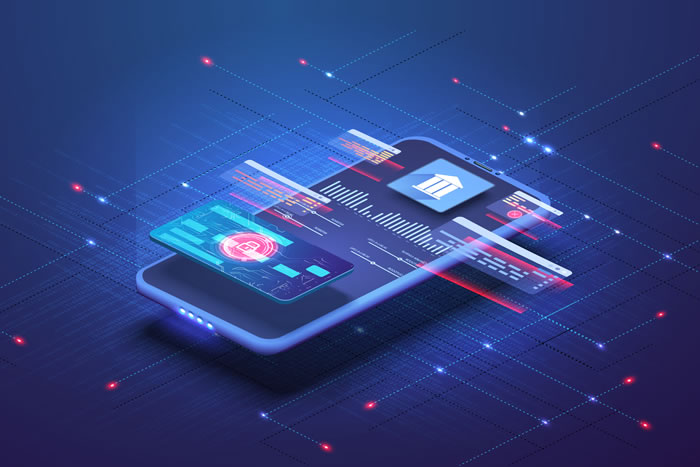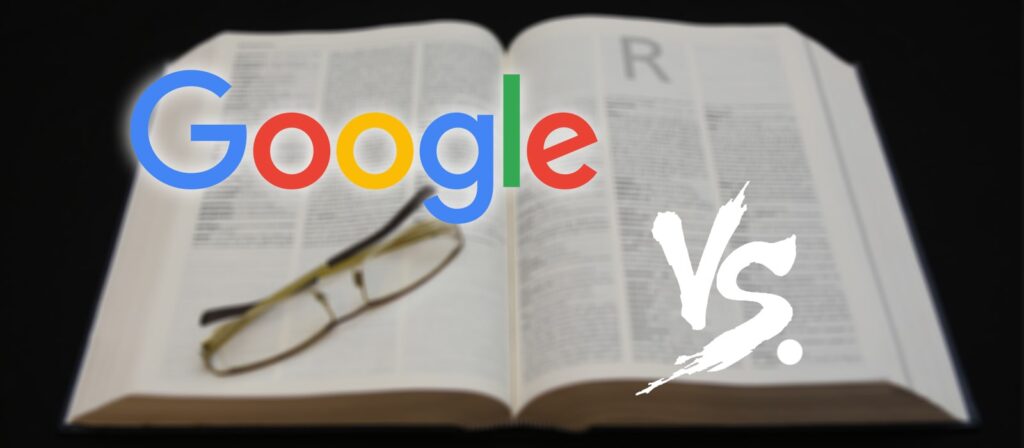Technology Dominates Modern Day Life, But Is It Good or Bad?
As a Gen X’er (those born between 1965 and 1980), I grew up alongside technology. However, life in the 80s and even the 90s was much different than it is now, and my childhood didn’t feel like it was dominated by all things electronic. We didn’t have cell phones, Google, or social media when we were young (much to the shock and horror of my kids). I didn’t spend the majority of my youth staring at a screen. I wouldn’t have grown up in any other decades, although that is all I know. Many people argue that we had it better than kids do now, but did we? (Is Life Better With Or Without Technology?)
Communication and Entertainment – From Street Lights to Cell Phones
Growing up, I spent most of my time playing outside with my friends. I have so many fond memories of running around outside for hours, exploring and going from friend’s house to friend’s house until it got dark. When the street lights came on at dusk, that was my signal that it was time to head home. My mom also had a giant bell that she would ring, and we would hear it from a distance and know that it was dinner time.
In elementary school and junior high, my friends and I passed notes back and forth to chat, and we knew about 1,000 different ways to fold a piece of paper. My friends and I would often mail letters to one another despite living just down the street and having the ability to walk to each other’s houses. I still have all of my notes and letters from childhood saved in a box, and it is quite a large collection.
We used landline phones with super long curly cords to call family and friends, and long phone calls were common and plentiful. One of our home phones was a rotary phone, and I still remember hating when someone had a 9 in their phone number, as that number took the longest to dial. When we were out and about, we carried around quarters for payphones, which we used to call our parents and tell them when it was time to pick us up from the mall. When I got to high school pagers (aka “beepers”) were popular, and it felt exciting to be able to communicate on-the-go.
During my youth music was mostly played via the radio or cassette players, but we also occasionally pulled out the record player. We spent hours waiting by our boomboxes, waiting to hear our favorite song on the radio, and when it came on we would quickly press record to try to tape the whole song on our cassette tapes without missing a beat. We used portable Walkmans to listen to our taped playlists. In the early 90s, audio CDs replaced cassette tapes, and cassette tapes basically became extinct. I’ve always wondered – is life better with or without technology?
MP3s, or digitally-compressed music files, brought about a new level of accessibility to music in the late 90s. However, it was still tricky to grab music off of the internet, until Napster came along. Napster was a software that enabled people to download their favorite songs from other users, who had retrieved them from ripped CDs, often breaking copyright laws. The software peaked from late 2000 to early 2001 until it declined in the early 2000s due to lawsuits from musicians and music companies.
The Apple iPod, a portable media player that was released in late 2001, was designed by Steve Jobs and revolutionized how we listened to music. Apple came through once again in 2003 when it introduced a new way to download music with the iTunes Music Store, which offered millions of songs for only 99 cents apiece. Now we have a plethora of ways to download inexpensive or even free music online using iTunes, Spotify, Google Play, Pandora, etc.

Is Life Better With Or Without Technology?
The Evolution of the Internet and Computers
My first experience with spending hours staring endlessly at a screen wasn’t until around 6th grade — when Nintendo was released — and I found myself staring at the TV well into the night, furiously pressing the buttons on the controller in an attempt to reach the next level of Super Mario Brothers. The only typing I did growing up was on typewriters, which involved lots of white-out for fixing errors. In junior high, I took a typing class using a typewriter. I spent hours practicing typing single letters (“ffff jjjj” repeat) on dot-matrix paper, and almost as much time pulling off the sides of the paper.
My first memories of using the Internet were in high school in the mid-90s. I would sit and stare at the computer screen as the pages slowly loaded, row by row. When it was my turn to use the computer (one person could use it at a time), I would have to warn my family members not to use the phone, for if they did, they would disconnect me. The constant connection interruptions of dial-up and the glacially slow pace of the World Wide Web were often more trouble than they were worth, so I would typically find myself pursuing other activities instead (although hearing “You’ve got mail” from AOL was very exciting).
When I was in college I felt pretty caught up with technology. I could type a hefty amount of words per minute and was pretty efficient at searching the Web. I basically thought I was a hacker because I knew how to write HTML. I had a trendy first Generation Apple iMac in bright turquoise (which was quite a bit chunkier and heavier than my razor-thin MacBook Air that I am currently typing on), which was the newest and the coolest computer.
As the internet evolved, connection speed and accessibility also increased. In the 2000s, we moved from dial-up internet access to high-speed broadband internet access (often shortened to simply “broadband”). Instead of sitting down to clunky old PC computers, we transitioned to using our razor-thin and feather-light portable laptops and mobile devices to access the Web. We use WiFi to connect to our devices virtually everywhere we go.
The Web, dominated by HTML, has been the primary go-to way to utilize the internet for years. However, due mostly to Steve Jobs’ contributions to mobile computing and the iPhone, apps have picked up traction in the last decade and are now how we spend the majority of our time online. Along with HTML, JavaScript and CSS are now used in web design.
[Note: Broadband is also confused with Wi-Fi, but broadband delivers data through cables while Wi-Fi wirelessly connects to a router, and is a way to use broadband. Many people also get the World Wide Web and the internet confused, but they are also two different things. The internet is a network of networks, and the World Wide Web only came about in 1990 and is an avenue for transmitting data over the internet.]
Books vs. Google

Nowadays kids often turn to the ubiquitous Google for research. “Google it,” is the answer to every question imaginable. The omnipresent virtual assistant conveniently searches by keyword and sorts through billions of pages. Although it was not the first search engine in existence, it is now the most utilized tool on the web. I remember when I found out that school-aged kids were using the Web for research. “That’s cheating,” I thought. Yet the convenience and efficiency of the Web make it a go-to source of information in modern times.
Searching online may seem like a quicker and easier option for research than the library, but it’s basically a crapshoot. The Web contains over a billion pages. Search engines like Bing, Google, and Yahoo use algorithms to interpret which content a user is seeking. SEO, or search engine optimization, has changed the way results are ranked. SEO is an “organic” (unpaid) process of achieving a high ranking and visibility in search engine results. SEO uses multiple factors, such as HTML factors and keywords, to game the algorithms of popular search engines. However, as a result, users may find themselves clicking on random links that may or may not be relevant to their search.
The accuracy, credibility, and objectivity of the Web is another issue. I grew up using my home encyclopedia collection for research, and now there is Wikipedia. Wikipedia is a “free encyclopedia” that anyone can edit. It currently contains over 6 million articles. Type anything into Google and the Wikipedia page for that search will likely be at the top of your search results. However, whether or not Wikipedia is a reliable source is another story. A better place to search online would be a library. Yes, a library. Libraries have had to evolve to keep up with the times and now offer online databases, which are much more likely to offer factual information than Wikipedia. There is no quality control on the web in general, and libraries choose the web content they add to their databases based on its quality.
Of course, you can still visit a library in person, and these days, with electronic catalogs, it’s easier to find what you need than ever. If you have any trouble, librarians can assist you. Also, despite the plethora of information available on the Web, only 8% of all scholarly journals and even fewer books – the sources of the most reliable scholarly information – are available online. Also, you won’t find cyberbullies or trolls at the library, as they are safe spaces, and all are welcome. Libraries have been around for 5,000 years and will continue to live on.
Technology is King
These days, technology unyieldingly dominates. My confidence in being up-to-speed in the world of tech is not as strong now as it was in my younger days, but there is so much more to learn, and I am learning more every day. Thanks in part to growing up along with technology, I can pick up a new software program pretty quickly and catch up with my younger peers. I am proficient in social media and my millennial friends often comment that they are impressed with my ability to keep up.
As much as I like to think that I am hip to technology, my kids put me to shame. I tried to limit their exposure to electronic devices (LeapFrogs, tablets, computers, even phones) growing up, but it seems that once they started using any form of technology, they surpassed my technological skills and ability at a lightning-fast speed. There is also, of course, the ongoing debate about whether technology is good for kids. Not only have they grown up with technology, unlike us older generations, but their little brains are inundated with nonstop flows of stimulation and blue light. Such a vast amount of exposure to technology can stunt kids’ social skills and negatively impact their mental and emotional well-being. Time aside, the things children are exposed to are not always quality nor good for them. As most of us parents know, it is best to limit their time spent on their electronic devices.
Many people wonder if cell phones and computers are stunting our communication skills even as adults, as people find themselves keeping up with the lives of their friends and family via apps like Facebook and Instagram, rather than speaking by phone or face-to-face. My parents and their friends used to sit outside on the patio and crack a few beers after sending us kids to bed, but now parents are more likely to plop on the couch and look at their phones or laptops than chat face-to-face with their friends and neighbors. Are we still connecting with each other? Or are we spending our time connecting more with our screens, under the false premise that it counts as social interaction? The debate on the effects of technology on people of all ages continues, but our usage does not appear to be declining anytime soon.
Is Life Better With Or Without Technology?
Which lifestyle is better —before or after internet and technology domination? There are upsides and downsides to both. Yet we cannot turn back time. The question now should be what we do with the world we live in today. Technology is not just for the younger generations. It is the way of the modern world. It is important to do our best to evolve and keep up with technology. So in your opinion, is life better with or without technology?

















Comments are closed.